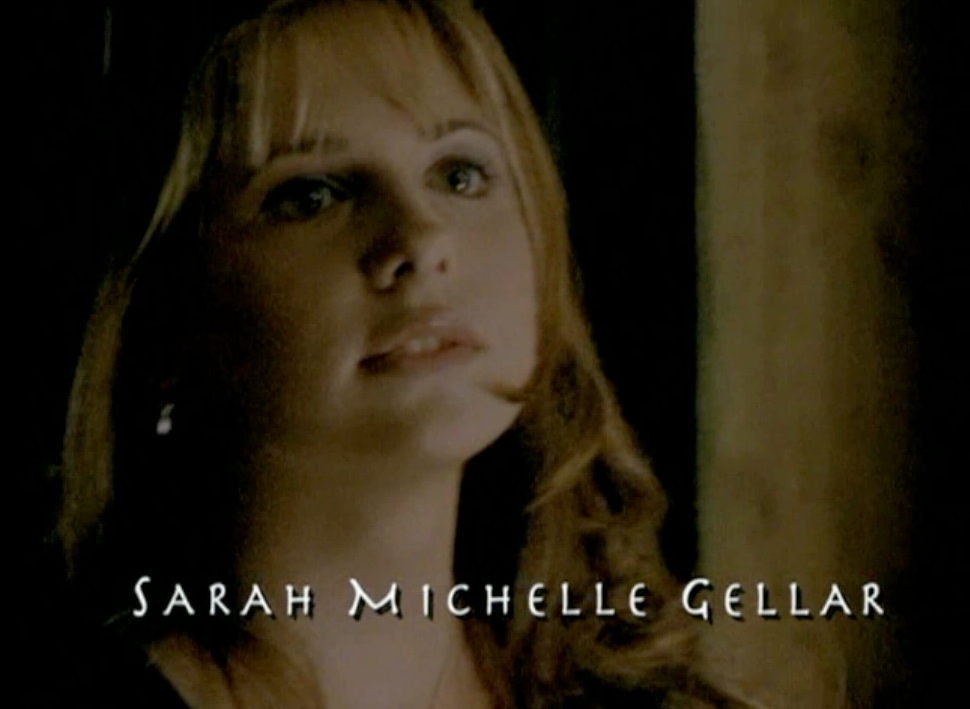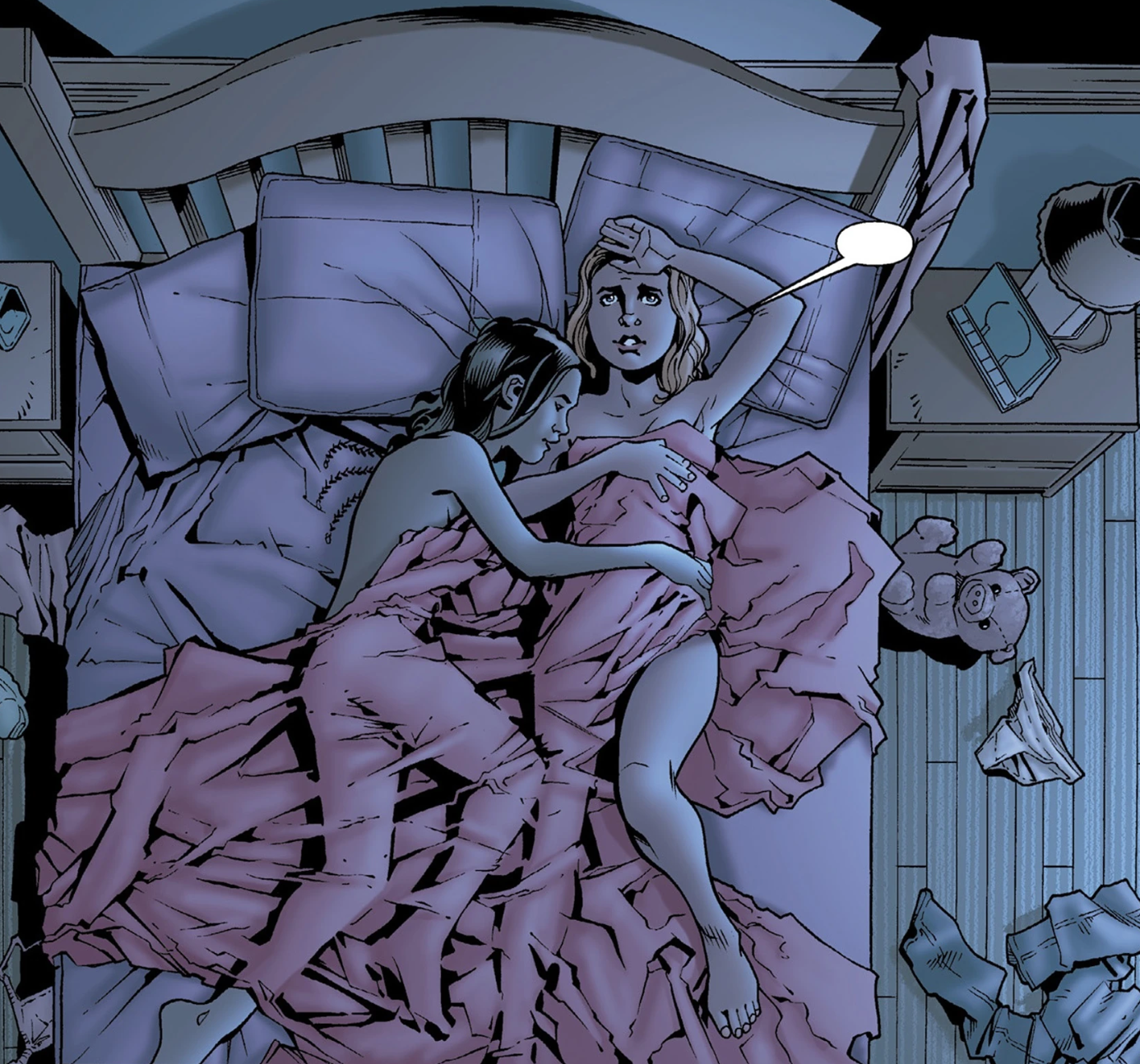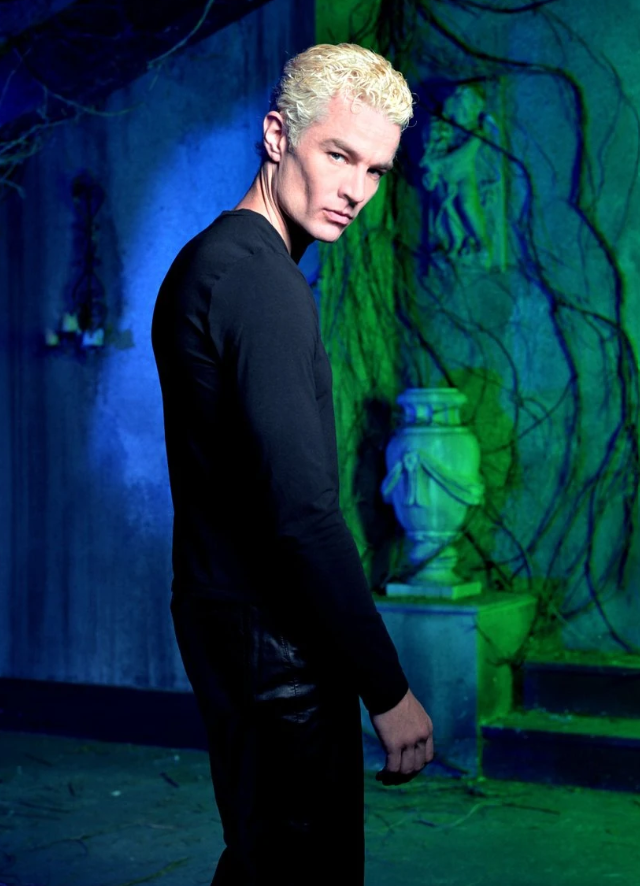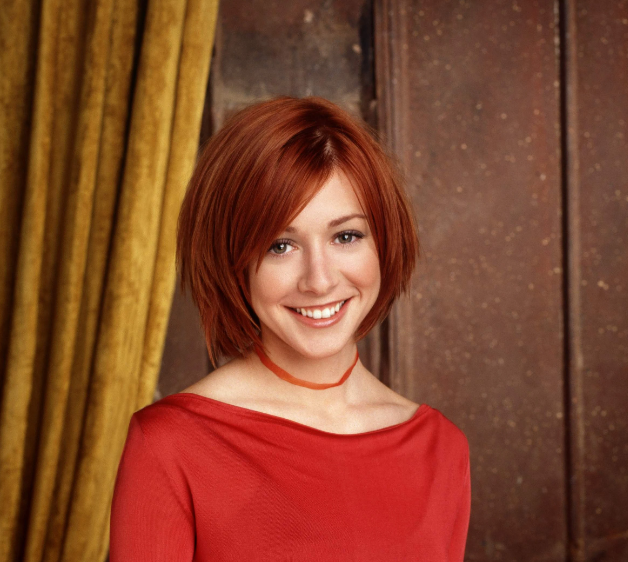
Putting the B in LGBTQIA: Bi Erasure and Pride Month
June 18, 2024
Happy Pride!
Thanks, disembodied voice to whom I address my blog! Happy Pride to you as well.
I'd like to follow up on our previous investigation into Absurdly Cis & Straight Stupidity (ACSS, with a soft C). But first: have I mentioned I'm bi? I am, and for the purposes of this post you should know that.
In answer to your next questions: yes, I'm married to a man; and no, I don't have threesomes.
Thirteen: Do you understand what bisexual means? It doesn't mean you have sex with two people at once.
- stating the obvious, House S06E17 "Lockdown" (aired 2010-04-12)
Uh, good for you, but why are you telling me?
Because the time has come to blog about bi erasure.
Bryan: It's kinda surprising you haven't written about that yet.
- My heterosexual husband, whose bi-erasure-radar is sometimes more sensitive than mine
Quick note on terminology!
I use the word “bisexual” to mean attraction to more than one gender. Some people choose to use “pansexual” to mean attraction to all genders, feeling it’s more trans-inclusive. I choose to stick with bisexuality because:
- Trans women are women and trans men are men
- Other genders (nonbinary, agender, etc.) exist and are included in “more than one gender”
- I really don’t want to explain to my parents that I’m not attracted to kitchenware. Not that there's anything wrong with that.
"When it comes to matters of the heart, we can't tell our kids who to love." -Roland Schitt #LoveWins #SchittsCreek pic.twitter.com/Lv38YQYewv
— Schitt's Creek (Pop) (@SchittsCreekPop) February 26, 2016
(Image Description: Two men wearing leis. One man says "my son is pansexual," the other responds, "I've heard of that, that's that cookware fetish.")
Other applicable labels can include “queer” or other variations. Labels are weird, as we’re about to explore, so please believe me when I say that the erasure of anyone outside the gay-straight binary is absolute nonsense and needs to be addressed.
Now on to my rant.
Whatever one calls it, people who experience attraction to more than one gender are super widespread in human history. Famous examples include:
- William Shakespeare
- Oscar Wilde
- Freddie Mercury
- Alexander the Great
- Walt Whitman
- Billie Holliday
- Hans Christian Andersen
- Mary Shelley
- Lord Byron
- Sappho
Wait, I thought those people were all gay? / Wait, I thought those people were all straight?
Excellent segue! Thanks for defining bi erasure for me. Although we've known about the concept of being attracted to more than one sex for millennia, and we've had the modern meaning of the word "bisexual" since at least the 1920s, modern Western culture has spent a lot of time insisting that bisexuality doesn't exist. Sexuality, the thinking goes, is a binary: one is either straight or gay. Therefore, bisexual people are "just confused," "not willing to admit they're gay," "doing it for attention," or (even worse) "depraved sex addicts." Hence why I knew you were going to ask me if I have threesomes.
In honor of Pride Month 2024, therefore, I'm going to point out three characters from my recent DFGRR watching who are never called bisexual, despite having relations with both men and women. They are all from Buffy the Vampire Slayer, which is because that's the only franchise I've reviewed to date that bothered with any type of non-ACSS representation...making it even sadder that bi identity got left out of the narrative!
The Erased

Wait, since when is Buffy bi?
That's a topic of some debate. In the original movie and the seven seasons of the show, Buffy (Sarah Michelle Gellar) only ever dated or slept with men. However, she had some rather-well-publicized subtext with her fellow Slayer, Faith (Eliza Dushku).
Buffy and Faith dance together, S3E14 (Aired February 19, 1999)
What do you mean "well-publicized"?
The creator of the show was forced to (*audible gasp*) acknowledge it, in the late 90s. As Joss Whedon told the story to Lisa Shapiro of Vulture:
At one point, fans [on the official WB forum] became convinced Buffy and...Faith, were romantically entwined. After Whedon shot down the theory...one of the posters (Buffynerd) sent him a link to her website, where she had published a meticulous exegesis of the relationship. He returned to the message board to applaud her, sort of. “By God, I think she’s right!” he declared. Dropping the facetious tone... [he proclaimed,] “I say B.Y.O. Subtext,” coining a phrase that fans would recite like scripture.
Oh, so the author didn't intend it?
Maybe not at the time, but he ran with it afterwards. In the 2008 continuation comic "Wolves at the Gate," a young woman named Satsu develops feelings for Buffy, who is flattered, if not immediately interested.
Satsu: But you're not gay.
Buffy: Not so you'd notice.
In an issue published in March 2008, though, they have a one-night-stand.

This confirms, in canon, that Buffy experiences sexual attraction to women as well as men.
So in other words, she's bisexual, right?
I'd say so, but the authors don't! They avoid the word "bi" like it's the plague. Instead, there's a whole arc in which Buffy has to insist she's not interested in Satsu, it was just a fling. And when Satsu is hurt by that (understandably), everyone says she can't be too surprised, since Buffy's not really a lesbian, it was an ill-conceived one-night-stand. Buffy's friend Xander actually describes the situation as Buffy trying to change her sexual orientation. Nobody, absolutely nobody, acknowledges that her orientation could simply be bisexual.
Please join me in an eye roll.
From Mean Girls, via GIPHY
Now, on to our next example of bi erasure: Willow (Alyson Hannigan.)
Wait, isn't Willow gay?
You'd be tempted to conclude as much, from the fact that she calls herself gay from season 5 onwards. For example, when denying she'd steal someone's boyfriend:
Hello! Gay now!
- "Triangle" (aired January 9, 2001)
Joking about how hot her best guy friend looks in his wedding tux:
Good thing I figured out I'm gay, otherwise...you, me, formal wear...
- "Hell's Bells" (aired March 5, 2002)
Or describing a gross phallic demon:
Tara: What did it look like?
Willow: Well, let's put it this way, if I wasn't gay before...
- "Entropy" (aired April 30, 2002)
So, isn't she, then?
Well...maybe.
To be fair, she exclusively dates women from halfway through season 4 until the series finale. This includes love-of-her-life Tara Maclay (Amber Benson), whose untimely death causes Willow to attempt world annihilation.
However.
In seasons 2, 3, and the beginning of 4, Willow had a werewolf boyfriend, Oz (Seth Green). He broke up with her during a personal crisis over his lycanthropy. When they next met, he wanted to get back together. She was already seeing Tara, yet she obviously continued to care about him.
Oz: It was stupid to think that you'd just be waiting.
Willow: I was waiting. I feel like some part of me will always be waiting for you. Like if I'm old and blue-haired, and I turn the corner in Istanbul and there you are, I won't be surprised. Because... you're with me, you know?
- "New Moon Rising" (aired May 2, 2000)
In other words, she tells him she's moved on, which is absolutely not the same as "I only dated you because I was in denial about my own sexuality." In fact, the total score of people Willow kisses on screen is an even split: two men (Oz and Xander), two women (Tara and Kennedy, another Slayer).
And yet, when a love spell in season 7 makes Willow briefly fall for a man she's just met, everyone around her reacts as if it's impossible - because she only likes women! The only reason all the characters would assume that would be if they believe seasons 1-4 Willow was "gay but in denial."
(*gets loudspeaker*) That's NOT automatically the case. Willow might be bisexual.
...except that this franchise truly does not want to say that word. Which brings us to our third and final example: Spike (James Marsters.)

Wait, is Spike canonically bi? I thought that was just a popular fan theory?
No, it's canon, though I can forgive you for missing it. The show was as coy as it could manage to be - begging the question, why throw the bisexuality into the plot at all? The writers could have made him straight and dodged the issue completely. Alternatively, he could've been openly bi if the writers had written dialog to that effect. Instead, they tried to have their cake and eat it too.
How so?
Exhibit A: He makes reference to sex with Angel (David Boreanaz).
Angel sired the vampire who sired Spike, making them vamp-family. The homoeroticism between them is mostly subtextual, however, towards the end of Angel season 5, it becomes textual when the good guys begin to suspect that Angel is falling to the darkside.
Illyria: A corrupted ruler...cannot suffer intimates and will eventually turn against them.
Spike: Guess I don't have to worry about that, 'cause Angel and me have never been intimate. Except that one [time]...
- "Power Play" (aired May 12, 2004)
Exhibit B: He seduces both women and men for the purposes of turning them into vampires.
This is confirmed by a pair of season 7 episodes, "Conversations with Dead People" and "Sleeper," in which he is helping the bad guys raise a vampire army (against his will, I might note.) On screen, we see his M.O. with two women. He chats with them (at or outside a bar), gets them to leave with him, kisses them, then bites them and drinks their blood. A bouncer at a local venue confirms that he's been doing this every night with different people.
We also meet his newly risen army, and at least 4-5 of the vampires are men. This means that offscreen, he was doing the chat-leave-kiss-bite routine with same-sex partners, too.
Exhibit C: The word "bi" is never said, and he's only ever shown actually kissing, dating, or sleeping with, women.
To cut the writers some slack, there's a potential historical reason why Spike wouldn't think of himself as bisexual. His human self died in the 1880s, when "bisexual" still meant what we would today call "intersex." Its modern meaning was not in widespread use until the 1950s. Plus maybe vampires just don't care about labels the same way. Still, the humans around Spike in the early Aughts would certainly have been aware of the concept of bisexuality, and the fact that they don't even comment on it counts as dodging the issue.
This confirming-yet-denying strategy earned Spike an entry in my favorite TV Trope, But Not Too Bi.
Why does it matter?
At the risk of sounding like a broken record: because representation matters. Bi people deserve to be seen just as much as every other category of people.
Ironically, those of us who swing both ways end up getting it [erasure, that is] from all sides.
- Some gay, lesbian, or trans people resent bi people for "passing as straight" when we're in opposite-sex relationships.
- Homophobes lump us bi people in with the L,G,T,I, and A in the acronym, while also accusing us of being somehow "sneaky" because we all don't wear signs around our necks saying "I'm Bi" when we're in opposite-sex relationships, hilarious though that would be.
And all of the above categories of people can be found questioning the existence of bisexuality. The questions, "are you sure you're not just in denial?" and "couldn't you just choose to not to act on your same-sex attraction?" have very different motivations, but they end up meaning the same thing: you are not real.
It gets exhausting, y'all.
Three years ago I talked about how when screenwriters say things like "it's too controversial," what they mean is, "I can't represent the LGBTQIA community in my fiction because I'm afraid of upsetting the people who don't like that." By the same token, if creators think "bisexuality might not even exist" or "it's just too complicated," that's deferring to the ACSS-holes of the world. When I was a little girl and only saw on-screen women portrayed as victims or sex objects, that affected how I saw myself. At the same time, when I only saw either straight or gay women on screen, that affected how I saw myself as a bisexual woman. That's why I'm so happy when a few modern shows get it right (see: Only Murders in the Building), and so peeved when other shows get it wrong.
Let's do better, shall we?
Pride Month Actions
In honor of the dignity of all people, I encourage you to:
- Check out what anti-LGBTQ bills have been proposed in your state lately, and contact your representatives accordingly.
- Donate to LGBTQ charities.
- Attend pride events, celebrate visibility, and listen to your LGBTQIA neighbors.
Until next time, keep your sexy lamps burning, and remember that there's nothing so queer as folk.
